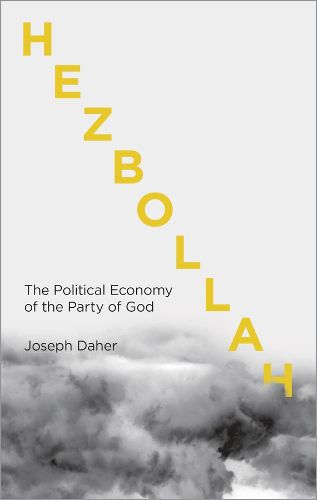Readings Newsletter
Become a Readings Member to make your shopping experience even easier.
Sign in or sign up for free!
You’re not far away from qualifying for FREE standard shipping within Australia
You’ve qualified for FREE standard shipping within Australia
The cart is loading…






Hezbollah provides a new, grounded analysis of the controversial and misunderstood Lebanese party. Where previous books have focused on aspects of the party’s identity, the military question or its religious discourse, here Joseph Daher presents an alternative perspective, built upon political economy.
Drawing on extensive fieldwork in Lebanon and dozens of interviews, as well as new archival and other primary sources, Daher’s analysis confidently positions Hezbollah within socio-economic and political developments in Lebanon and the Middle East. He emphasises Hezbollah’s historic ties with its main sponsor, the Islamic Republic of Iran, its media and cultural wings and its relationship with Western economic policies.
Further chapters examine the party’s policies towards workers’ struggles and women’s issues, and its orientation towards the sectarian Lebanese political system. Hezbollah is a well informed and fresh analysis of a topic which remains central to our understanding of one of the world’s most tumultuous and politically unstable regions.
$9.00 standard shipping within Australia
FREE standard shipping within Australia for orders over $100.00
Express & International shipping calculated at checkout
Hezbollah provides a new, grounded analysis of the controversial and misunderstood Lebanese party. Where previous books have focused on aspects of the party’s identity, the military question or its religious discourse, here Joseph Daher presents an alternative perspective, built upon political economy.
Drawing on extensive fieldwork in Lebanon and dozens of interviews, as well as new archival and other primary sources, Daher’s analysis confidently positions Hezbollah within socio-economic and political developments in Lebanon and the Middle East. He emphasises Hezbollah’s historic ties with its main sponsor, the Islamic Republic of Iran, its media and cultural wings and its relationship with Western economic policies.
Further chapters examine the party’s policies towards workers’ struggles and women’s issues, and its orientation towards the sectarian Lebanese political system. Hezbollah is a well informed and fresh analysis of a topic which remains central to our understanding of one of the world’s most tumultuous and politically unstable regions.